July 2017
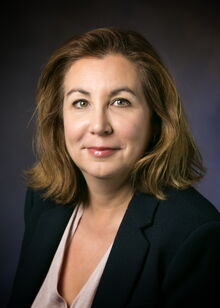
L. Elena Delgado of Spanish and Portuguese has been awarded the competitive Unit for Criticism and Interpretive Theory Senior Research Fellowship for the years 2017-19 to advance on her book project, "Habits of the Heart: Affective Attachments in the Public Sphere." The Unit will provide fellowship support to help Elena undertake the research necessary to completing the book.
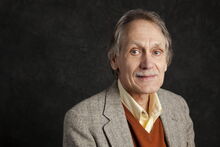
Jim Kuklinski of political science has been awarded the American Political Science Association Political Psychology Section's 2017 Hazel Gaudet Erskine Political Psychology Career Achievement Award. The award is an honor to Hazel Gaudet Erskine, a prominent social scientist and a member of a multiple univerisity research project that studied the effect of mass media on society in the late 1930s. Kuklinski is the second recipient of the award.
June 2017
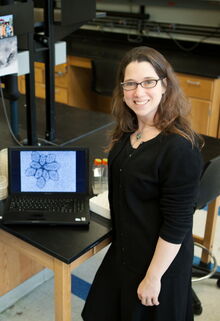
Rachel Whitaker of the Department of Microbiology has been named an Allen Distinguished Investigator by the Paul G. Allen Frontiers Group, which will bring $1.5 million over the next three years to her research of microbial evolution. Whitaker is one of five new ADIs recognized by the Frontiers Group for pioneering research in epigenetics, aging, and evolution.
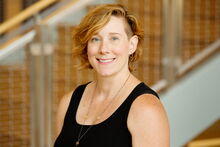
Kathryn Clancy of the Department of Anthropology was elected to the Biological Seat on the American Anthropological Association Executive Board. The American Anthropological Association is the world's largest association for professional anthropologists and has more than 10,000 members.
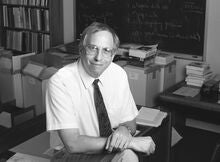
Don Wuebbles of the Department of Atmospheric Sciences has been named a Presidential Fellow for the University of Illinois System. An expert in climate change, air quality, and environmental issues, Wuebbles will focus on ways to promote urban sustainability throughout the U of I system by capitalizing on science, technology and human analysis.
May 2017
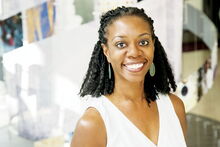
Ruby Mendenhall of sociology and African American studies and Patricia Gregg of geology have been named faculty fellows at Illinois' National Center for Supercomputing Applications for 2017-18. Mendenhall will examine the physiological effects of exposure to nearby gun crimes such as shootings as a way to document the public life and health of African-American mothers. Gregg will expand current efforts in volcano model-data fusion into a scalable data assimilation strategy that will provide a framework for volcano hazards research worldwide.
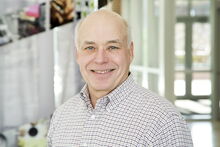
Four LAS faculty members were elected members of the National Academy of Sciences. They are John Cronan, professor and head of microbiology and a professor of biochemistry, Jeffrey Moore, the Murchison-Mallory Professor of Chemistry, Donald Ort, the Robert Emerson Professor of Plant Biology, and Gary Parker, the W.H. Johnson Professor of Geology.
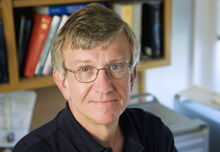
John Gerlt, the Gutgsell Chair in biochemistry, received the 2017 Gordon Hammes Lectureship from the Division of Biological Chemistry of the American Chemical Society. The award recognizes a single individual whose scientific contributions have had a major impact on research at the interface of chemistry and biology.
April 2017
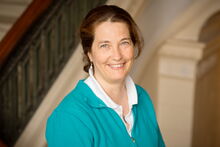
Professor Thomas Nevins of mathematics, Associate Professor Dana Rabin of history, Professor Rebecca Stumpf of anthropology, and Professor Andrew Suarez of entomology are the recipients of the Dean's Award for Excellence in Undergraduate Teaching.
Carla Beatriz Rosell of english and Supriya G. Prasanth of cell and developmental biology are the recipients of the Lynn M. Martin Award for Distinguished Women Teachers.
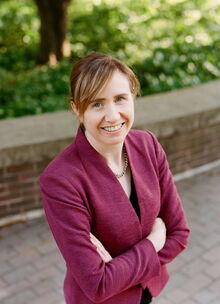
Justine Murison of English and Sarah West of Spanish and Portuguese are the recipients for the Humanities Council Teaching Excellence Award. Murison and West are recognized for their efforts in humanities instruction.
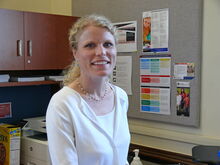
Gretchen Adams is the recipient of a 2017 Excellence in Undergraduate Teaching by Instructional Staff. Adams, a professor of chemistry is recognized for her efforts in the classroom.
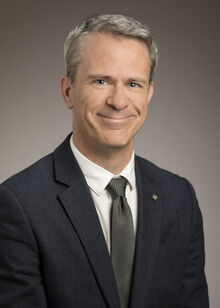
Robert Rushing's new book, "Descended from Hercules: Biopolitics and the Muscled Male Body on Screen" (Indiana University Press) won the Film and Media Studies book prize from the American Association for Italian Studies. Rushing is an associate professor of French and Italian.
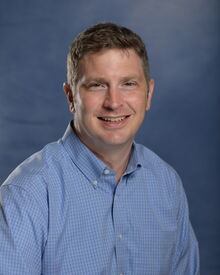
Bob Morrissey, associate professor of history, was named the Mellon Faculty Fellow in Environmental Humanities. His term will last from the fall of 2017 until 2020. In this role, he will serve as the primary supervisor for the Environmental Humanities Research Group.
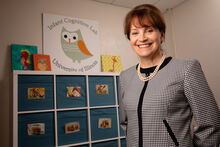
Renee Baillargeon, professor of psychology, received the Distinguished Scientific Contributions to Child Development Award from the Society for Research in Child Development. It recognizes her continuous lifetime contributions to the scientific body of knowledge and understanding of children's development.
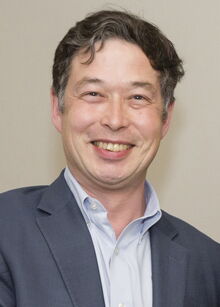
Matthew Ando, professor and chair of mathematics, won the Campus Executive Officer Distinguished Leadership Award. The award is among the 2017 Campus Awards for Excellence in Faculty Leadership.
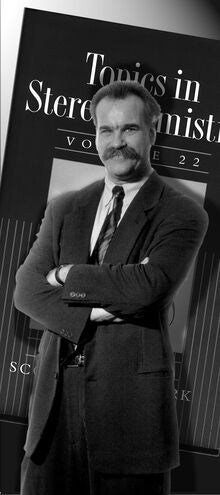
Scott E. Denmark of chemistry has been elected to the American Academy of Arts and Sciences. Denmark is one of 228 new members, including national and international scholars, artists, philanthropists and business leaders.
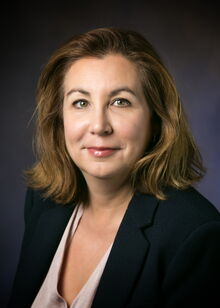
Brian Jefferson of geography and geographic information science and Luisa-Elena Delgado of Spanish and Portuguese have been awarded Criticism & Interpretive Theory Junior Research Fellowships from the University of Illinois' Unit for Criticism.
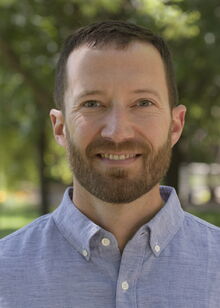
Trevor Birkenholtz of geography and geographic information science was awarded the Robert McC. Netting Award from the Cultural and Political Ecology Specialty Group of the American Association of Geographers. The award is in recognition of distinguished research and professional activities that bridge geography and anthropology.
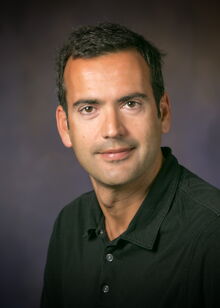
Eduardo Ledesma of Spanish and Portuguese, Hong Jin of biochemistry, David Sarlah of chemistry, and Catharine Fairbairn of psychology have received the Lincoln Excellence for Assistant Professors (LEAP) Award, which is granted to faculty based on scholarly productivity and contributions to the educational mission of their departments and the college.
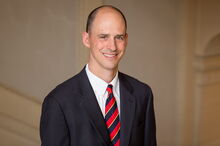
Jonathan Ebel , professor of religion, has been awarded a 2017 Guggenheim Foundation Fellowship. Ebel is one of 173 scholars, artists and scientists named as 2017 Guggenheim Fellows. They were chosen from almost 3,000 applicants on the basis of prior achievement and exceptional promise.

WaÏl S. Hassan has been elected as the American Comparative Literature Association's second vice president. Next year, he'll become vice president and will serve as president the year following. Hassan is a professor of professor of comparative and world literature and English.
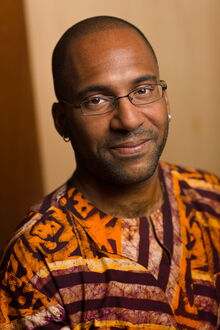
Erik S. McDuffie is the recipient of a 2017 fellowship from the American Council of Learned Societies. McDuffie, a professor of African American studies and history, is one of only 71 fellows chosen from nearly 1,200 applicants.
March 2017
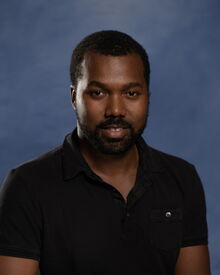
Irvin Hunt, associate professor of English, has been awarded a 12-month Fellowship with the Woodrow Wilson National Fellowship Foundation. The foundation creates career development opportunities for faculty with promising research projects in an array of fields including English, critical dance studies, history, Mexican American and Latino/a studies, sociology, music, American studies, and philosophy.
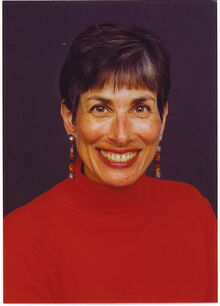
Helaine Silverman, professor of anthropology, has been awarded the Sheth Distinguished Faculty award for International Achievement for her teaching, research, and acts of public service. Read more about the award.
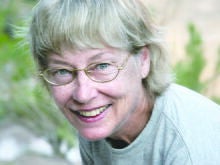
Sue Kieffer, professor emerita of geology, has received the 2017 Marcus Milling Legendary Geoscientist Award of the American Geosciences Institute (AGI). The award is given to a recipient with consistent contributions of high-quality scientific achievements and service to the earth sciences and is a senior scientist nearing completion or has completed full-time regular employment.
February 2017
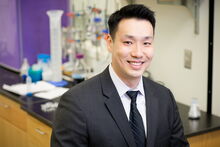
Four LAS faculty members have been selected as 2017 Alfred P. Sloan Research Fellows. They include Joaquin Vieira of astronomy, and Jefferson Chan, David Sarlah, and Josh Vura-Weis, all of chemistry. The two-year, $60,000 fellowships are awarded yearly researchers in recognition of distinguished performance and a unique potential to make substantial contributions to their field.
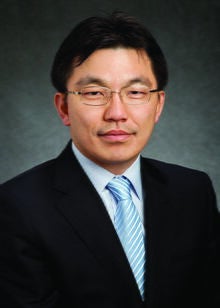
Joon Kong, a professor and Centennial Scholar in the Department of Chemical and Biomolecular Engineering, has been elected to the College of Fellows at the American Institute for Medical and Biological Engineering. The AIMBE College of Fellows represents the most accomplished and distinguished medical and biological engineers responsible for innovation and discovery.
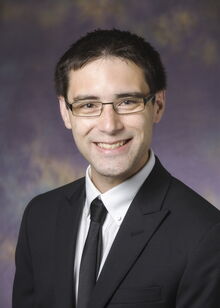
Charles Sing, an assistant professor of chemical and biomolecular engineering, has received a 2017 National Science Foundation CAREER Award for his proposal, "Developing the design rules of charge sequence to inform polymer self-assembly." The program will provide five years of support.
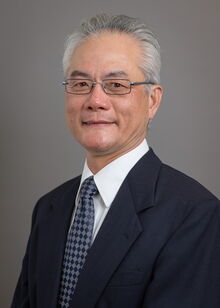
Feng Sheng Hu, the Harry E. Preble Dean of the College of LAS, a professor of plant biology and the Ralph E. Grimm Professor in Geology, has been named a fellow of the Ecological Society of America. The honor recognizes Hu's outstanding contributions to his field.
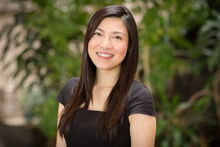
Joey Cheng, an assistant professor of Pscyhology, has been named an Association for Psychological Science Rising Star. The award recognizes outstanding psychological scientists in the earliest stages of their research careers.
"Away Running," a young-adult novel by David Wright, an associate professor in the Department of English, has been recognized as one of the Outstanding International Books of the year by the United States Board on Books for Young People.
January 2017
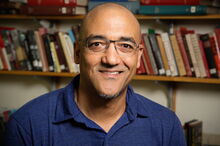
History professor Kevin Mumford, author of "Not Straight, Not White: Black Gay Men from the March on Washington to the AIDS Crisis," has received a 2017 Stonewall Book Award honoree in the Israel Fishman Non-fiction Award category. First awarded in 1971, award recognizes works of exceptional merit relating to the gay, lesbian, bisexual and transgender experience.
Michele Koven, an associate professor in the Department of Communication has won a Fulbright U.S. Scholar grant to pursue her research in in Portugal in 2017-18. She studies relationships between identity and language practices in migrant communities.
December 2016
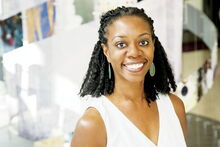
Ruby Mendenhall of African American studies and sociology, and Robert Wilhemson, professor emeritus of atmospheric sciences, have won the HPC Innovation Excellence Award given by the International Data Corporation.
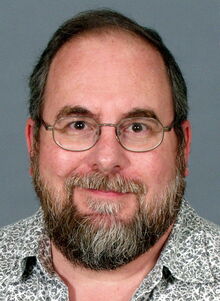
Kenneth Suslick, emeritus Marvin T. Schmidt Professor of Chemistry and professor of materials science and engineering, has been named a Fellow of the National Academy of Inventors (NAI). He was nominated by his peers for outstanding contributions to innovation.
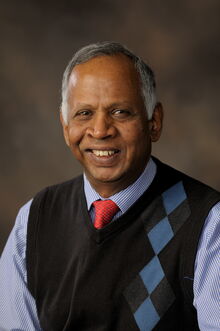
Murugesu "Siva" Sivapalan, a professor in the departments of Geography and Geographic Information Science and Civil and Environmental Engineering, has been awarded the 2017 European Geosciences Union's (EGU) Alfred Wegener Medal, which recognizes scientists who have achieved exceptional international standing in atmospheric, hydrological, or ocean sciences.
November 2016
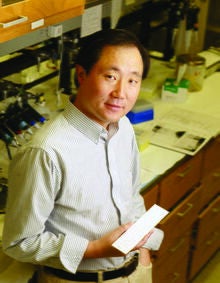
Six LAS faculty members have been named to the Clarivate Analytics Highly Cited Researchers list for 2016 (previously known as the Thomson Reuters Highly Cited Researchers list). They include crop sciences and plant biology professor Lisa Ainsworth, crop sciences and plant biology professor Stephen P. Long, chemistry professor Yi Lu, chemistry professor Catherine Murphy, plant biology professor Donald Ort, and psychology professor Brent Roberts.
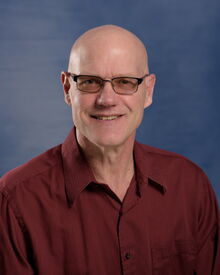
Bruce L. Rhoads, a professor of geography and geographic information science, and Chad M. Rienstra, a professor of chemistry, have been elected 2016 Fellows of the American Association for the Advancement of Science for their efforts to advance science applications that are deemed scientifically or socially distinguished.
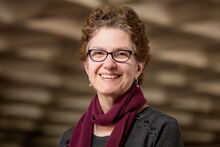
Antoinette Burton has been named a University of Illinois Presidential Fellows. In this role, she'll help help build on the U of I System's long legacy of leadership in the arts and humanities. Burton is a professor of history, the Bastian Professor of Global and Transnational Studies, and director of the Illinois Program for Research in the Humanities.
Ruby Mendenhall, associate professor of sociology and African American studies, received an Innovation Excellence Award from the International Data Corporation (IDC) for innovations in supercomputing. It recognizes "noteworthy achievements by users of high performance computing technologies." The award was announced at The International Conference for High Performance Computing, Networking, Storage, and Analysis in November 2016.
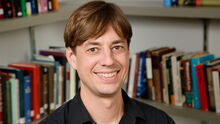
Ned O'Gorman, associate professor of communication, won the 2016 Bruce E. Gronbeck Political Communication Research Award from the The Carl Couch Center for Social and Internet Research and the Political Communication Division of the National Communication Association. The award honors Ned's new book, "The Iconoclastic Imagination: Image, Catastrophe, and Economy from the Kennedy Assassination to September 11." The Gronbeck award is given to recognize outstanding work that addresses important issues in political communication.
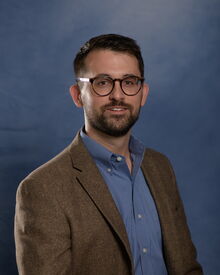
Will Barley, assistant professor of communication, won the National Communication Association Organizational Communication Division's 2016 Outstanding Article Award for his article, "Anticipatory Work: How the Need to Represent Knowledge Across Boundaries Shapes Work Practices Within Them," published recently in Organizational Science.
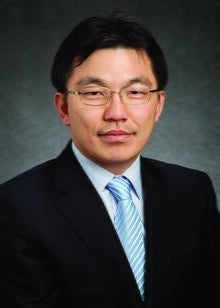
Hyunjoon Kong, professor in the Department of Chemical and Biomolecular Engineering; Robert Morrissey, associate professor in the Department of History; and Rebecca Stumpf, professor in the Department of Anthropology, all won 2016 University of Illinois Campus Distinguished Promotion Awards. The award, given by the Campus Committee on Promotion and Tenure, identifies scholars whose contributions and achievements within their respective fields are particularly excellent.
September 2016
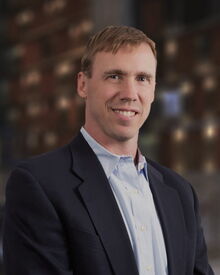
Paul Hergenrother, the Kenneth Rinehart Jr. Endowed Chair in Natural Products Chemistry, won the 2017 Arthur C. Cope Scholar Award from the American Chemical Society. He also won the European Federation for Medicinal Chemistry's UCB-Ehrlich Award for Excellence in Medicinal Chemistry.
August 2016
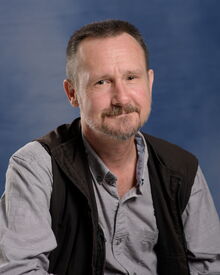
John Hummel of psychology was named a fellow by the Society of Experimental Psychologists.
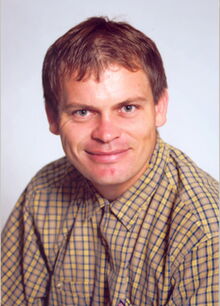
Jozsef Balogh of mathematics won the George Polya Prize in the category of a notable application of combinatorial theory, which is awarded by Society for Industrial & Applied Mathematics.
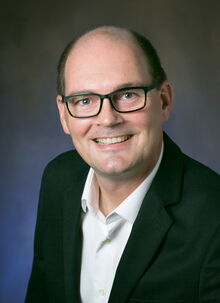
Marcus Keller, an associate professor of French and Italian, won the French Republic's Chevalier dans l'Ordre des Palmes Academiques. It's awarded by the prime minister of France to recognize scholarly contributions to the dissemination of French culture.
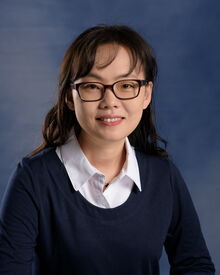
Vera Hur of mathematics won the Simons Fellowship in Mathematics form the Simons Foundation. The fellows program is intended to make leaves more productive by enabling their extension from one academic term to a full academic year.
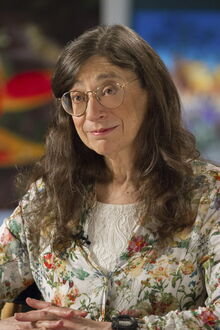
May Berenbaum of entomology received United States Department of Agriculture's Sterling B. Hendricks Memorial Lectureship Award and the Peabody Museum at Yale University's Addison Emery Verrill Medal.